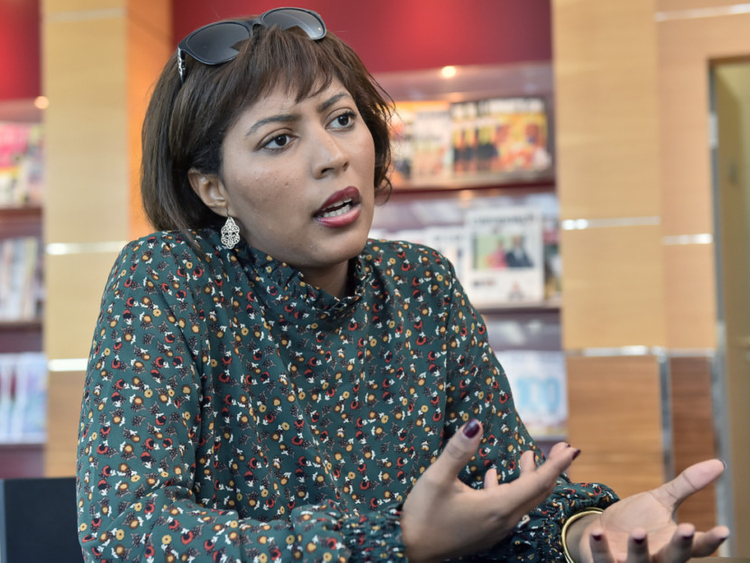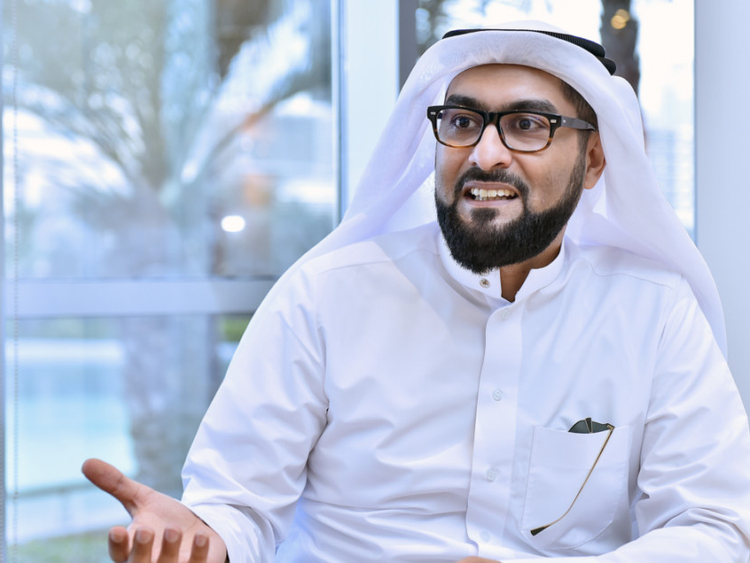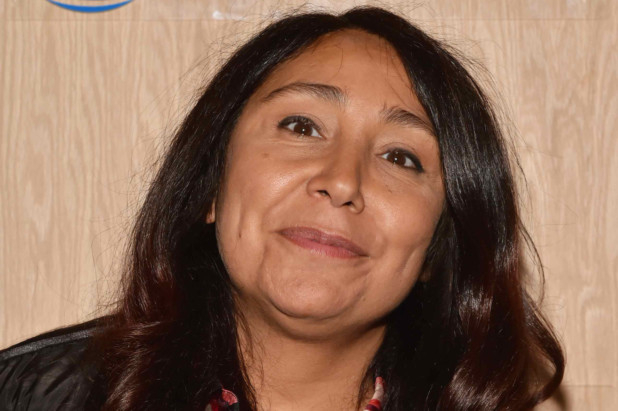A talking camel, an abusive father, a brothel dancer and a man working in a lingerie shop — these are just a few of the major characters presented by Gulf filmmakers this year as part of the IWC Filmmaker Award competition.
Only one director will walk away with a $100,000 (Dh367,217) cash prize on December 7, the second night of the Dubai International Film Festival (Diff). Ahead of the private gala announcement, find out what all four shortlisted filmmakers have in store.
‘MISS CAMEL’ by Saudi filmmaker Haifaa Al Mansour:
What is your movie about?
I wanted to tell a fun story that examines the perceptions women have of themselves in the Kingdom [of Saudi Arabia] and the ways they form their aspirations. The actual Miss Camel beauty pageant always seemed so absurdly authentic to our region, so it was a natural setting to develop the story around. Miss Camel will use music, drawing, poetry and design to showcase Eastern arts in a way that Western audiences can appreciate and embrace.
Why now?
For too long the cultural gaps between our cultures has been allowed to widen. It is time to find the shared rhythms and melodies that connect us, the designs and ideas that cross these lines, and the emotions and values that are universal to all people. That is the purpose of art, and this film will celebrate it as the missing link to quelling the clash of civilisations.
What’s your budget?
We are now working with animation specialists to design the characters and the environment, which will have a lot to do with shaping the final budget. The IWC Filmmaker Award would give us the resources to put together a comprehensive design team and possibly even get some test footage shot.
‘ANIMAL’ by Emirati filmmaker Nayla Al Khaja:
What is your movie about?
If I had to summarise it, it would be a happy family and a sociopath. It’s about an iron fist father. An A class narcissist, who doesn’t use physical abuse but mental abuse. It’s so extreme that living in that house is like experiencing fear that spreads like cancer. The kids, a brother and sister, through humour and playfulness, they find ways to break through that control freak atmosphere. But it gets a bit dark. So the big question is whether they’ll be able to survive their father or not. It could be disastrous. It could be fatal.
Why now?
In our lives, there’s always some sort of bully. It’s really about finding the strength in yourself to say no to these types of people. I remember an incident when a relative of mine saw a picture of mine in the newspaper and took it in front of me and tore it into pieces. It was really horrible to see that.
What’s your budget?
I don’t want to bypass the Dh3 million mark.
‘THE CROWN OF OLIVES’ by Omani filmmaker Muzna Al Musafer:
What is your film about?
[Reem, a brothel dancer] is a foreigner who comes to a conservative society like Oman, with a lot of ideas about love and hope. The character breaks stereotypes. Everybody thinks of Moroccans as people who practice sorcery. She believes in a different type of sorcery. She believes in the sorcery of the heart. I needed to find those Moroccans who seduce men and I needed to know what their secret was. I realised it was something deeper.
Why do you want to make it?
I spent seven years out of Oman, and when I came back, people treated me like they treat my character because I didn’t know so much about my society. I had to learn and study it again. For me, this project is a personal or a psychological journey.
What’s your budget?
A realistic budget, I would say. Me and my producer wrote something realistic, but we don’t know what would come out. But we have to take a risk if we don’t receive everything.
‘KOMBARS’ by Bahraini filmmaker Mohammad Rashed Buali:
What’s your film about?
Once I passed by a very famous lingerie shop, and I saw a man selling in there. Even though I was with my wife, I never had the courage to step inside. I wondered how women would interact with the man, who might ask about size or colour. What if he was a local man? With a beard and ghotra and agal? In the beginning it was an idea for a short film. But it developed into a very interesting feature film. It’s about a guy who’s a kombars [an acting extra] — and how the media presents our culture through films, TV and social media. Real life is way stranger than fiction.
Why do you want to make it?
These days, the value of a person is determined by the number of followers he has. You see there are some people who actually lead far more significant lives than those who have achieved fame through frivolous means. I wanted this movie to be funny, but at the same time, it’s sad. You’re laughing, but on the inside, you’re crying, because you see what life really is.
What’s your budget?
For me, I’m always working on a small budget, because we know we don’t have a big market. The perfect amount is $450,000, because I can pay everyone who’s working and I can have a team that works with me.
- *The above Q&As have been edited and condensed for clarity.















